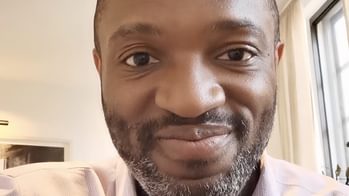Trouble Sleeping?
Sleep is a natural and essential part of life - but it’s surprisingly hard sometimes. What do you do when you can’t sleep? Dr Chi Chi Obuaya gives some insight about when poor sleep might be a sign of something else, and how to manage the bouts of insomnia that almost everyone will experience at some point.
Hello, I'm Dr. Chi-Chi Obuaya, I'm going to talk about sleep.
So as a psychiatrist, I sometimes see people who have difficulties with sleep. It's usually not just sleep alone: they may be very anxious and that's very closely linked to poor sleep, because if you're anxious, you're probably gonna have a very busy mind. And if your mind's busy, you might not relax easily when it's time to go to sleep. And if you're overthinking, that's gonna impair your ability to get to sleep or it might wake you up during the night.
The other situation in which I might see people, is if they're depressed and depression can be associated with poor sleep, again, the early or middle phases but also in the morning when people feel very low in mood, they might wake up earlier than normal.
But I wanna reassure people having poor sleep doesn't mean that you've got an anxiety disorder or necessarily depression. And in the context of the pandemic, lots of people's lives have been disrupted, and our minds are a lot busier.
Sleep is quite complex, it's affected by lots of factors: so for example, if we're spending lots of time on our devices, particularly late in the evening, there's blue light on those devices like iPads and mobile phones. And that interferes with one of the hormones called melatonin, which actually signals to our brain and we produce it ourselves, it signals to our brain that it's time to go to sleep. So that's why we're really keen for people to limit access to their devices in the evening. Or if you're using a screen, you can apply filters to your laptop, your iPad or your mobile phone, so it filters out the blue light and that reduces the impact of that blue light on the secretion of melatonin.
So lots of sleep problems can actually be addressed without any medication, by just adhering to what we call sleep hygiene. So if people drink lots of coffee or caffeine containing drinks, like sugary drinks and also tea, particularly in the afternoon, that can have a negative impact on our sleep. And if we can reduce that, that makes a difference. If we have regular exercise, that can help. And if we just start to have a process for winding down in the evening, that also helps. So things like meditation and breathing exercise can be really helpful.
But generally speaking, if we're under a lot of stress, we need to think of ways, wherever possible, of reducing our stress levels because that has a positive impact on our ability to sleep. If our minds are busy, that's not a good thing but if we have ways to relax, that's going to promote good sleep.
If you've tried those things and it's still not getting the job done, that's the time at which it's worth seeing a doctor. And it might be that you're under stress or that there are things going on, like working very late or studying hard in the evenings that just need a bit of tweaking. So it's nothing to be alarmed by but definitely worth seeking help if you've tried basic measures and that's not helping.
Do look on the Royal College of Psychiatrists website, there's an A to Z: under S, there's a section on sleep and it gives some of the tips and tricks for good sleep, thank you.


